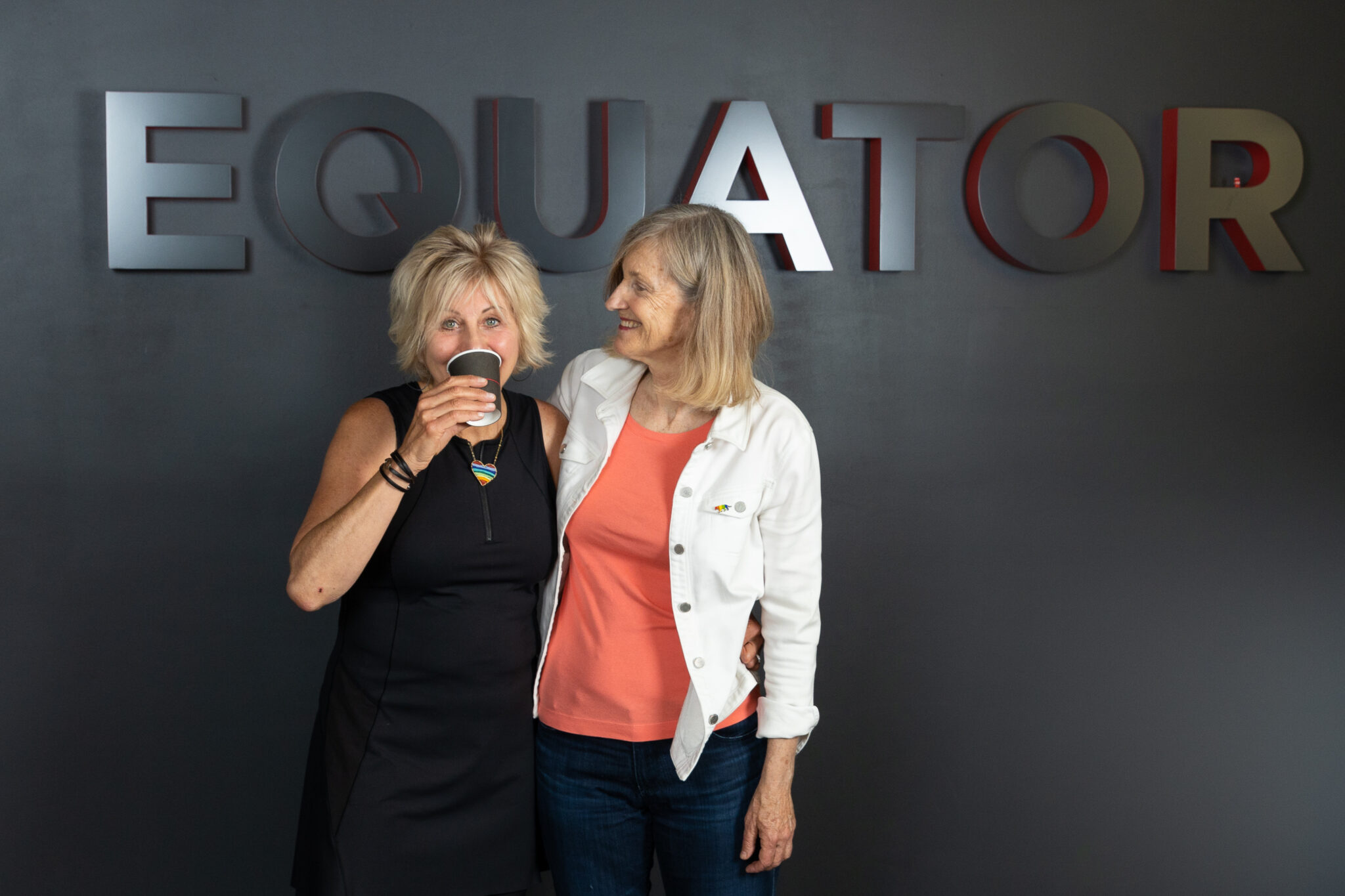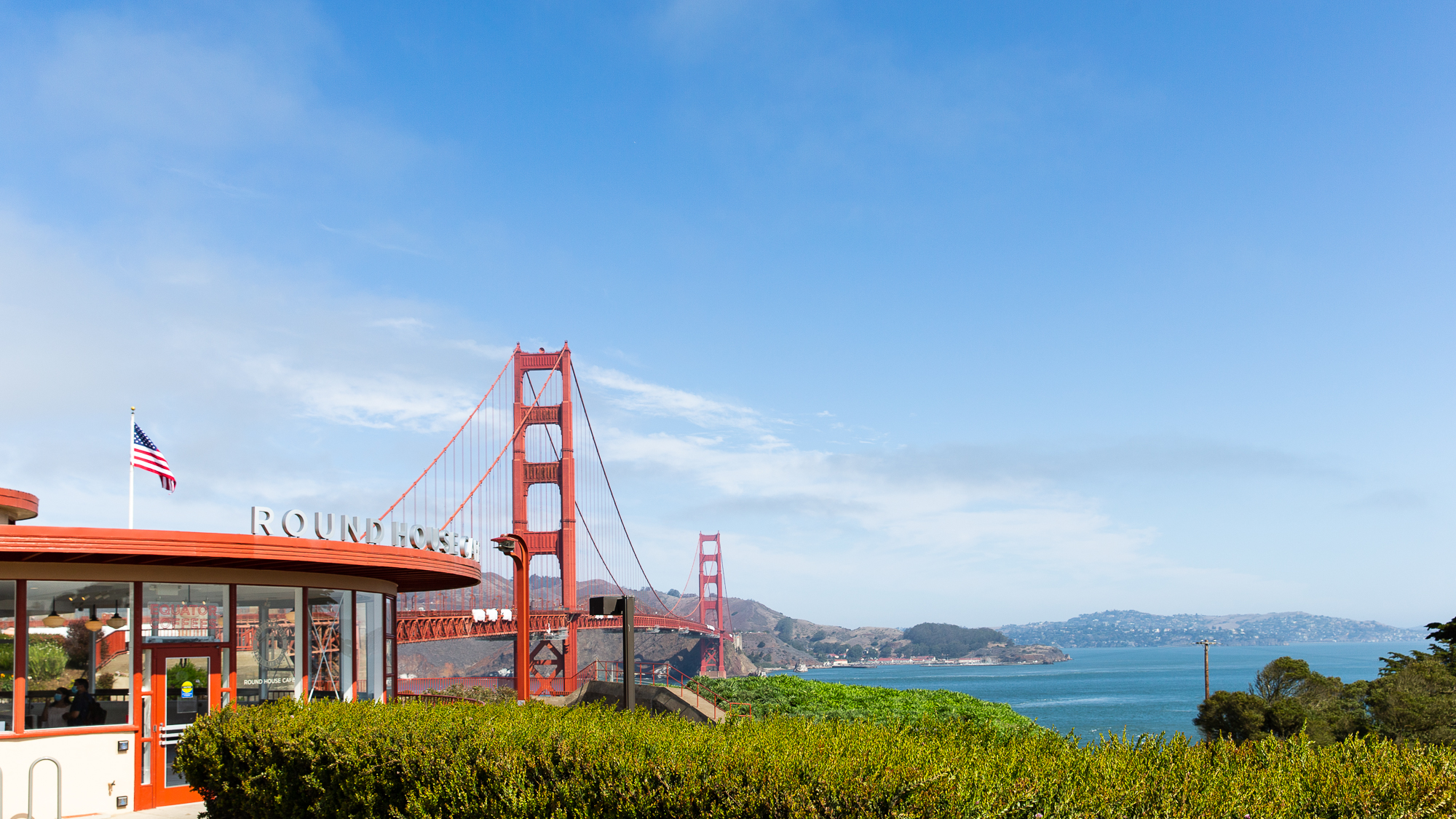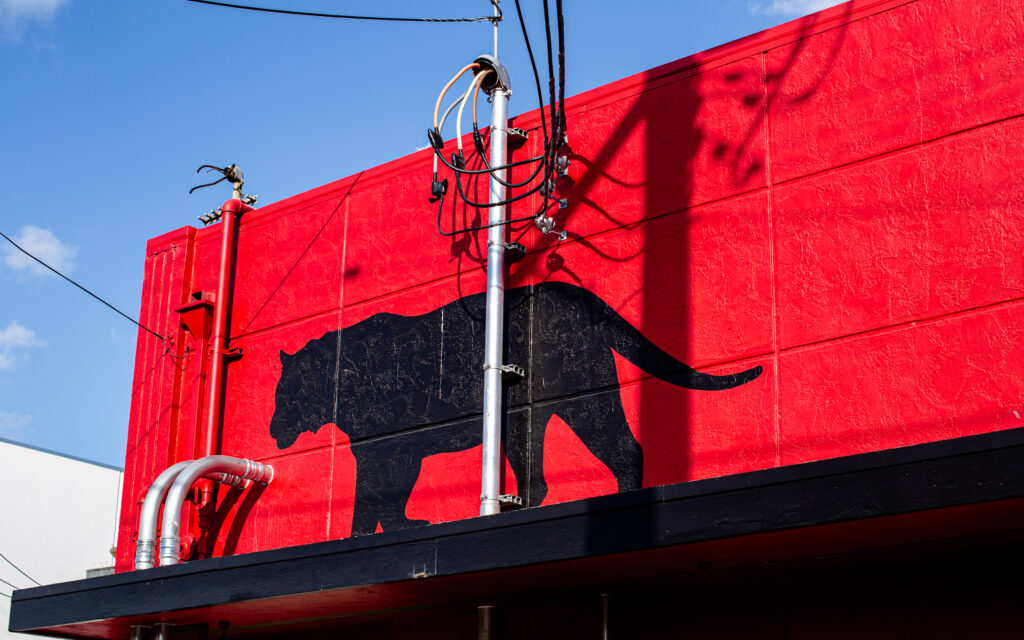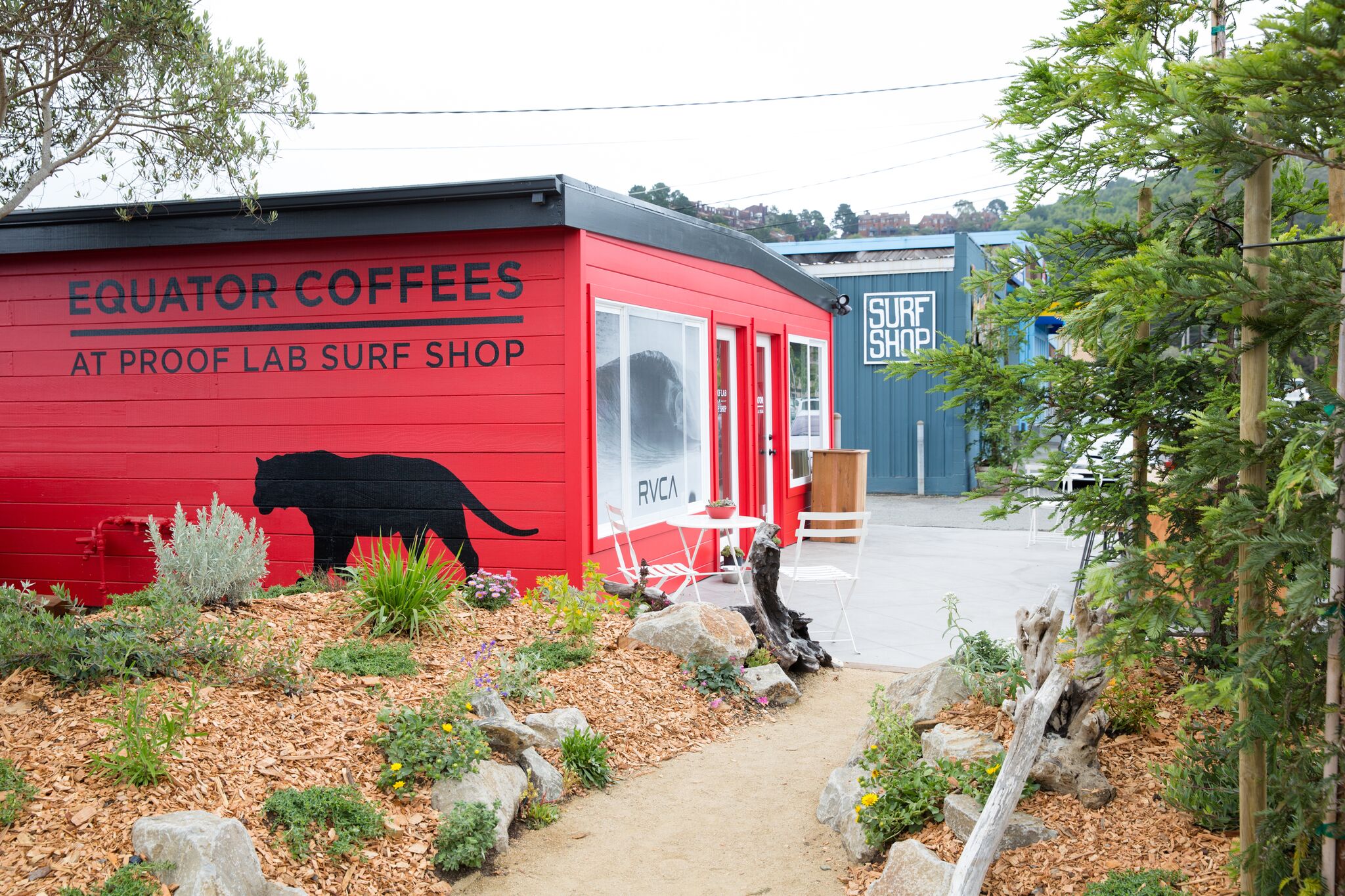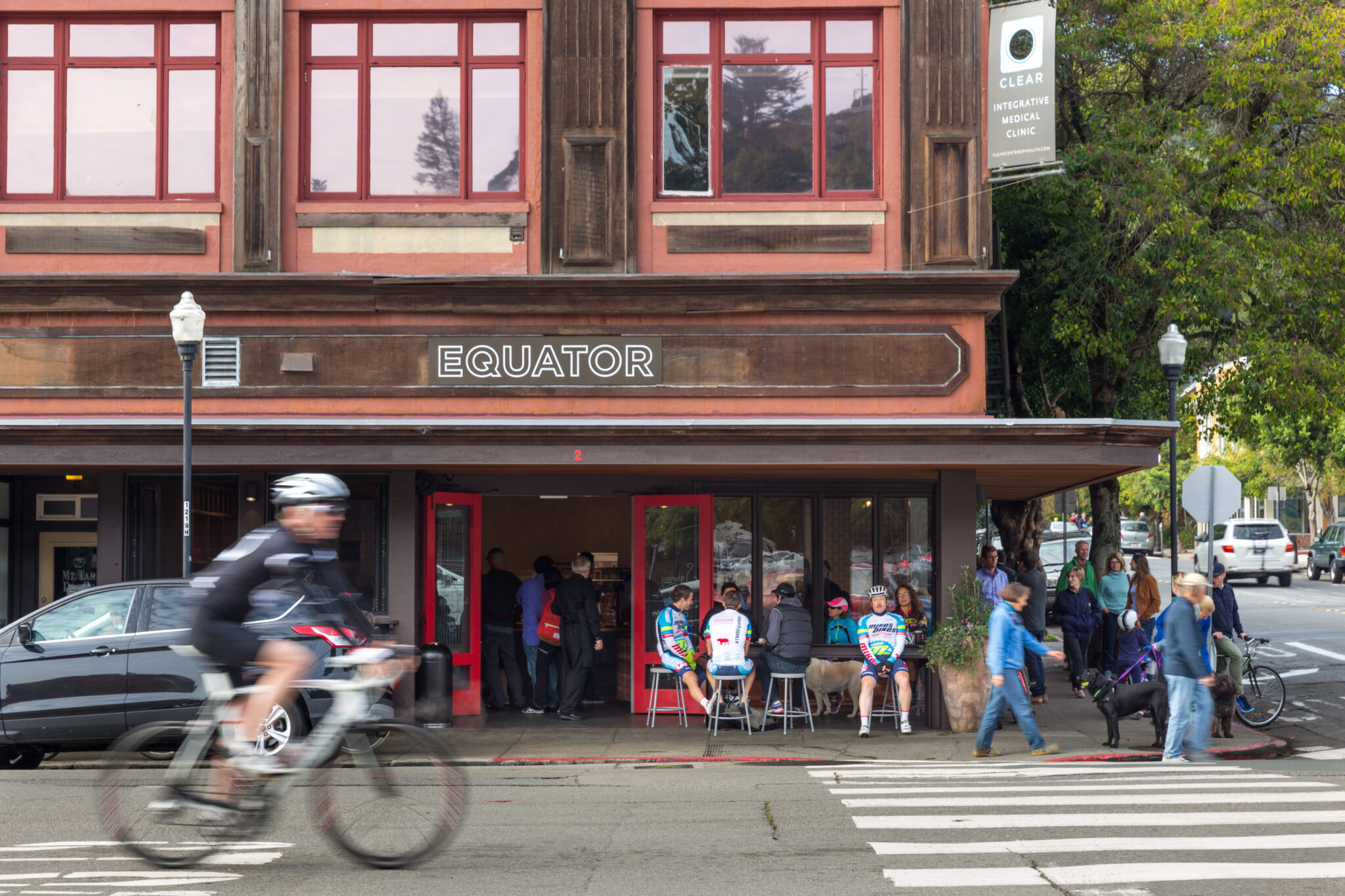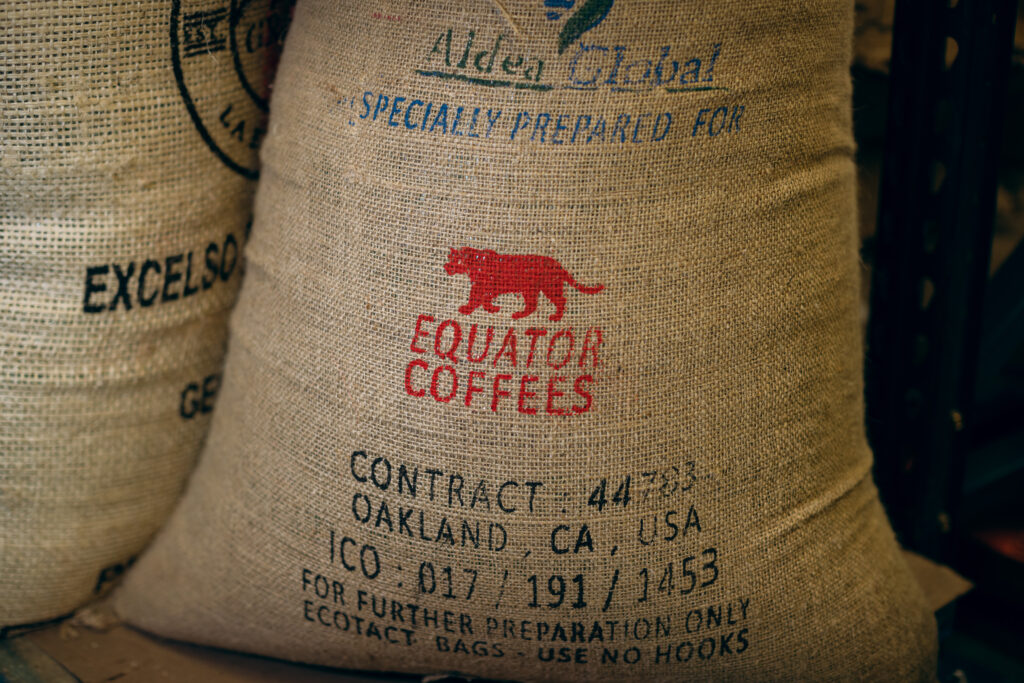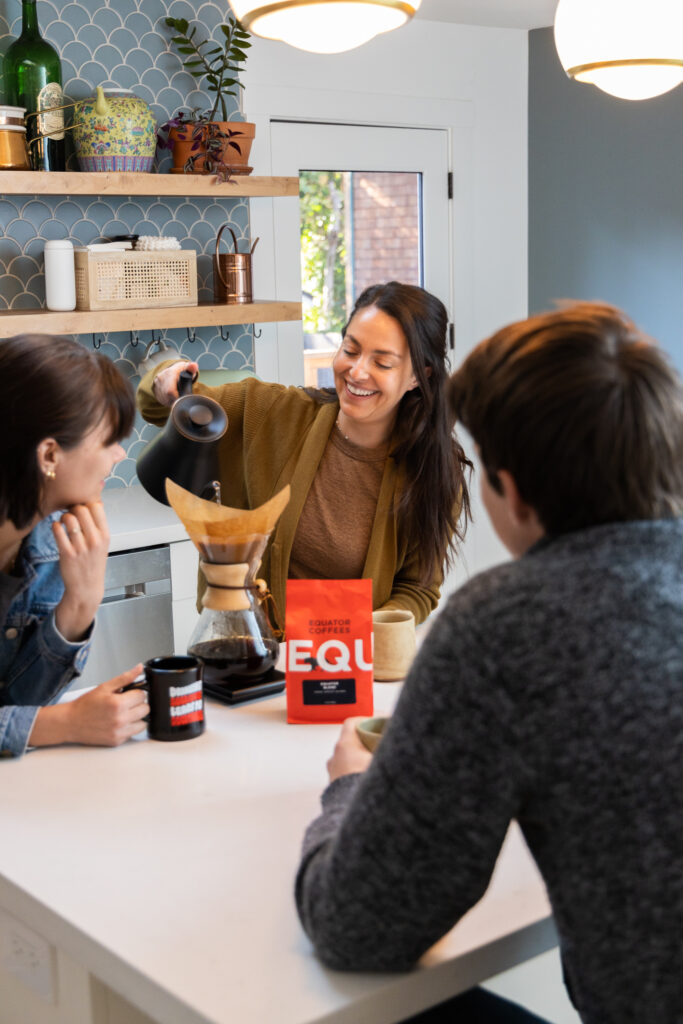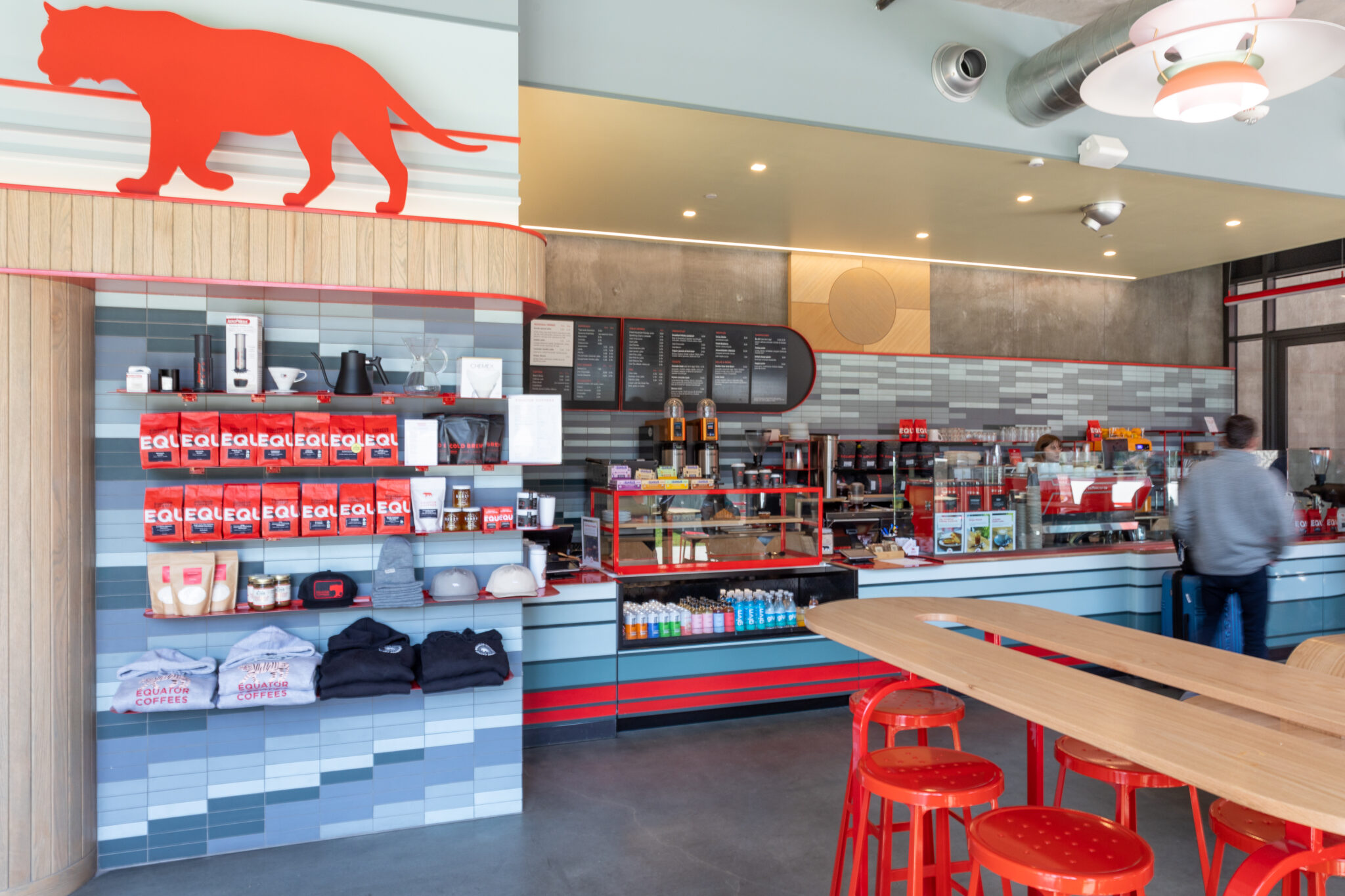How two queer women found each other and chose to navigate a rapidly changing industry with Equator Coffees, hoping that doing things a different way could provide them with purpose.
Words by Eddie Kim
Images courtesy of Equator Coffees
For the last three decades, Brooke McDonnell and Helen Russell have raised and nurtured Equator Coffees into a Bay Area craft coffee powerhouse, earning rave reviews and industry honors for their range of delicious beans.
The origin story reads like a small-business fairy tale: Two women start experimenting with hand-roasted beans out of a garage in the sleepy enclave of Corte Madera, Calif., and discover new alchemy amid a 1990s coffee renaissance. But their partnership wouldn’t have happened if not for a fortuitous meeting some 500 miles away, at the queer gathering known as the Dinah Shore Weekend in Palm Springs.
It’s where Russell, a Boston native, first met San Francisco native McDonnell in the spring of 1989 — and just a few months later, Russell decided she needed to move her life to the Bay Area, too.
“Brooke took me to Cafe Flore and Caffe Trieste, and there was a place near my in-law apartment in Mill Valley — it was called the Roastery. I mean, growing up in Boston and just drinking Dunkin’ Donuts coffee all the time, then moving across the country and seeing craft coffee, a roasting machine and green coffee beans… I was just blown away,” Russell said.
Over the next few years, the duo traveled along the West Coast, wondering how their careers could unfold. Russell was a Northeastern University grad with blue-collar roots and a nose for business; McDonnell grew up in a white-collar family and went to Skidmore for art. They dabbled in real-estate investing around the Pacific Northwest, sharing daydreams of entrepreneurship. Then, while sipping on Starbucks from a little kiosk in Seattle’s Pioneer Square, a lightbulb went off.
Russell loves to tell the anecdote: There they were, with Russell clutching a sweet mocha topped with whipped cream and McDonnell carefully tasting an espresso. “I said, ‘Brooke, you love coffee. I love business. We should really do something in this industry,’” Russell recalled.
You feel a sense of wonder in coffee that I think even the current younger generation getting into this industry can feel. The same way I felt in 1995, when I started roasting.
— Brooke McDonnell
By the early 1990s, America’s coffee culture had begun to evolve, giving prominence to “second-wave” coffee brands like Starbucks and Caribou that offered people their first foray into espresso and specialty drinks. Although the notion of paying premium prices for a latte was still fairly radical among the masses, McDonnell and Russell purchased two coffee kiosks and opened their first business, dubbed Europa, in 1992 to serve downtown Oakland and downtown San Francisco.
“Starbucks hadn’t even come into town yet. This model hadn’t taken off. But it felt like a great time for a coffee entrepreneur to try something new. And we got business people lining up at 6 a.m.,” McDonnell said.
Ever the connoisseur, she began inquiring about the specific origin, growing environment and quality of the coffee beans she was purchasing wholesale.
“And our supplier replied by saying, you know, ‘Why are you asking all these questions? We buy from central, south, and east Africa, and Indonesia.’ They didn’t understand why we wanted to know about the potassium levels in the soil and the various microclimates in a region and if the children of these coffee farmers were going to school,” Russell said. “These questions weren’t really being asked, or answered, back then.”
In the beginning, I wasn’t talking about being gay or Brooke and I being life partners. We just talked about the product.
— Helen Russell
It was the second lightbulb moment for the two women, who realized they could make a statement as an indie coffee roaster. By their count, there were only about thirty-something roasters working on the West Coast at the time.
Nowadays, there are over 300 in the region and thousands across the U.S., informed by decades of craft coffee knowledge and expertise. Not so much in 1995, when McDonnell and Russell took the funds from selling the Europa kiosks to a friend and opened Equator as a business in a garage, outfitted with just one tabletop Petroncini roaster and five-pound bags of green coffee from New York City-based Dallis Bros. Coffee.
Their modest beginnings belied the swells of success that would come over the next 28 years. McDonnell honed her skills by taking advice from any roaster who would humor her, and her seminal trip to Guatemala in 1997 proved that Equator needed to do more than sell good beans — it needed to give insight into the people and places that nurtured them.
Two years later, the company became the first California roaster to earn Fair Trade certification, at a time when sustainability and ethical sourcing were fringe topics. Other milestones followed: In 2003, rising demand led to Equator’s expansion into their current roasting facility in San Rafael, Calif.
The wholesale operation grew steadily through the decade, buoyed not just by sales to cafes but also tech companies and chef-driven restaurants. In 2013, Equator launched its very first retail location in Mill Valley.
You can make a ripple effect by doing amazing work in coffee. And it made our world a little smaller, in the best way.
— Brooke McDonnell
Then, three years later, the Small Business Administration awarded Equator as the national small business of the year — the first LGBTQ-owned business to win the accolade.
It proved to be a moment of reflection for McDonnell and Russell. Their queer identities had taken a backseat when Equator first launched; at the time, it seemed challenging enough to be a woman-owned roastery in a male-dominated industry. Today, Russell feels a twinge of regret when describing feeling trapped, in part by her own fears but also societal norms at the time.
“In the beginning, I wasn’t talking about being gay or Brooke and I being life partners. We just talked about the product. It really wasn’t until we won as a LGBTQ small business on a national stage that we really started talking about how important that was,” Russell said. “Of course, we’re in the Bay Area and it’s a bubble, but it was clear how important it was for our team, a number of whom are queer. The people that work for us are so proud to be associated with this.”
In the last seven years, Equator has affirmed its identity as an LGBTQ-owned company while also evolving in scope, with its first expansion out of the Bay Area in 2022, via a glitzy new store in Culver City in Southern California. That debut served as the speartip of a southbound push, with another opening this summer in Los Angeles’ hip Fairfax district and a third location planned for the picturesque town of Laguna Beach.
Equator has certainly outgrown its ragtag roots — McDonnell jokes that the employees have no idea she used to be the company’s sole janitor.
Yet despite its rise Equator has maintained the principles of equity, transparency and inclusion that she and Russell discussed all those years ago. They boast that any employee is welcome to pore over their financial records.
And beyond fair wages or philanthropy, the duo have chosen to invest directly at the source, co-owning a coffee farm, Finca Sophia, in the highlands of Volcán, Panama.
In so many ways, Equator Coffees is a project borne out of an intense journey of discovery. Two women found each other and chose to navigate a rapidly changing industry as partners, hoping that doing things a different way could provide them with purpose. Russell and McDonnell have grown older and wiser since then, but the innate joy remains.
“You feel a sense of wonder in coffee that I think even the current younger generation getting into this industry can feel. The same way I felt in 1995, when I started roasting,” McDonnell said. “You can connect with distant communities with just the smallest steps, whether it’s paying the right price or partnering on a farm. You can make a ripple effect by doing amazing work in coffee. And it made our world a little smaller, in the best way.”
Follow Equator Coffees on his travels on Instagram.

